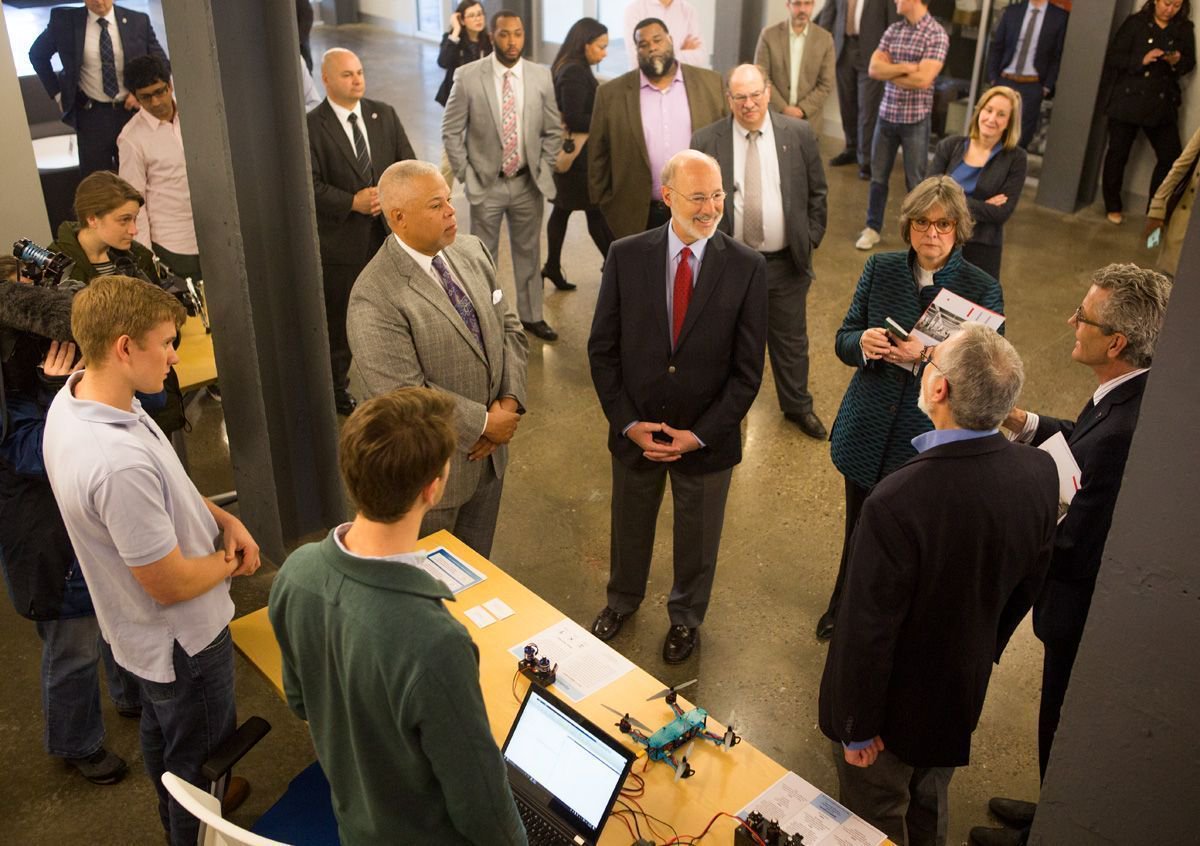Tech has helped lead America out of the recession and toward economic vitality. At the local level, it’s been exciting to watch our tech community grow, contributing to Philadelphia recently outpacing New York City in job growth.
But unfortunately, a new state budget proposal in Pennsylvania might change all that.
The commonwealth is looking to reverse a decades-old decision and add a 6 percent tax to tech services, including writing code, system design, information retrieval, processing, storage and management for clients. In other words, the tax will be levied on anyone selling technology services in Pennsylvania.
Facing a $3 billion deficit, Gov. Tom Wolf is proposing the return of a 1991 sales tax exemption change that was repealed in 1997. This will sour those rosy job growth prognostications and has the potential to unravel the conditions that make Philadelphia a “lean startup’s paradise.”
In the short term, the additional sales tax revenue on computer services might be a momentary, at best, profit for Pennsylvania. Current estimates suggest that reinstating the tax could net the state upwards of $356.8 million. This boost would cover just over 10 percent of the current deficit. That’s no small amount of revenue, but it’s not even close to filling the gap.
The long-term forecast would be even less effective, however.
My company, PromptWorks, provides services to regional startups and multinational enterprises alike, from Philadelphia to New Jersey to Silicon Valley.
A 6 percent tax fundamentally changes the arithmetic of our business and makes it more difficult to compete nationally from a city that already levies extra taxes on business income and receipts, wages and net profits.
The tax would make Pennsylvania’s software consulting services the most heavily taxed in the nation. We love Philadelphia and feel lucky to be able to operate our business here, but this tax could make it untenable. As the proposed tech tax nears reality, some tech firms in Philadelphia may already be eyeing up office space in Camden, N.J., just across the river.
And the tax cuts both ways.
Not only will it add financial burdens that disincentivize businesses from staying in the region, it will discourage buyers from purchasing software services from Pennsylvania companies. Small businesses will likely end up passing some portion of the cost on to consumers, devaluing the offering. With an overwhelming amount of work already going to cheaper overseas software shops, our region needs to be more competitive in the industry — not less. If our businesses can’t compete on cost or attract and retain talent, we risk the entire region being left behind in the digital era.

Members of the PromptWorks team. (Courtesy photo)
PromptWorks cofounder Jason Garber began collecting and remitting sales tax on computer hardware when he started his first business in 1997. A laptop delivered to a Philadelphia address is easy enough to tax — even Amazon collects sales tax in every state now. Less clear is delivery of custom applications developed by a potentially globally distributed team and deployed to cloud servers around the world, with the bill paid by a Delaware corporation.
What Pennsylvania needs — and what Gov. Wolf is tasked with — is finding sustainable revenue streams to fund the services on which citizens of the commonwealth rely. The tools at the disposal of government are taxation and regulation, but in the free market, businesses have the option to adapt within the law as necessary to keep their businesses viable and their workers employed. Like any good business relationship, there’s a give-and-take that has to happen to make progress and we value the health of our commonwealth, where most employees also live and raise their families.
We aren’t anti-taxes. Government services are an important part of all our lives. We value the hardworking firefighters, the underfunded school teachers (school quality is our biggest challenge in attracting tech workers to Philly!) and the sanitation workers who keep our neighborhoods clean. But singling out computer services — perhaps the most footloose industry in existence — isn’t going to solve the commonwealth’s budget problems.
If regions want to be corridors of innovation, they can’t put disproportion burden on a still fledgling tech community.
Make no mistake: the small and medium-size computer businesses of the state would be hardest hit. Comcast isn’t going anywhere, but the companies that sit in its shadows and supply them with custom software, data services, hosting, computer facilities management and disaster recovery very well might. Maybe these service providers will relocate or shift services to offices in other states. Maybe they will close down or change to a business model that isn’t subject to the computer services tax. But the market gives tech companies in Southeastern Pennsylvania more options than in Harrisburg or Altoona.
We plan to keep our doors open and continue providing the top-tier custom application design and development services we have since 2013, but if this tech tax becomes law, companies like ours will have a harder time winning business and fueling innovation in Southeastern Pennsylvania.
We should not let that happen.
Before you go...
Please consider supporting Technical.ly to keep our independent journalism strong. Unlike most business-focused media outlets, we don’t have a paywall. Instead, we count on your personal and organizational support.
3 ways to support our work:- Contribute to the Journalism Fund. Charitable giving ensures our information remains free and accessible for residents to discover workforce programs and entrepreneurship pathways. This includes philanthropic grants and individual tax-deductible donations from readers like you.
- Use our Preferred Partners. Our directory of vetted providers offers high-quality recommendations for services our readers need, and each referral supports our journalism.
- Use our services. If you need entrepreneurs and tech leaders to buy your services, are seeking technologists to hire or want more professionals to know about your ecosystem, Technical.ly has the biggest and most engaged audience in the mid-Atlantic. We help companies tell their stories and answer big questions to meet and serve our community.
Join our growing Slack community
Join 5,000 tech professionals and entrepreneurs in our community Slack today!





